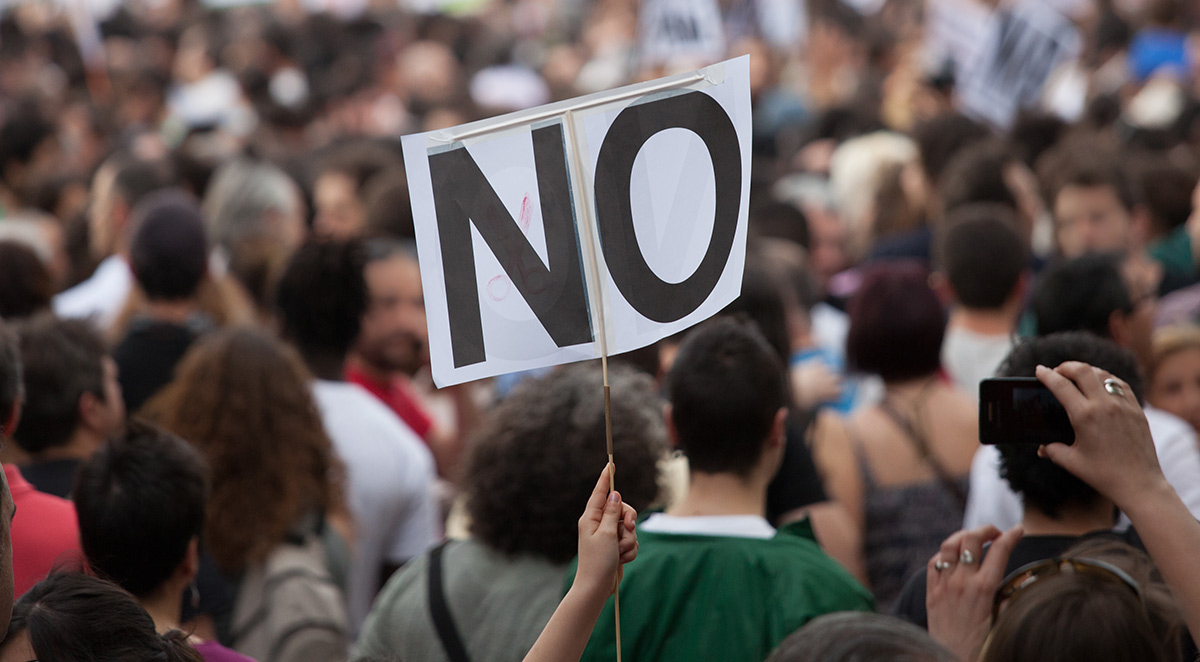The recent riots and looting across the U.S. raised questions among my clients wondering about their personal safety as well as protection for their companies. The vandalism, theft and curfew caused significant losses to both individuals and businesses. Unfortunately, civil disorder is becoming more common, it seems. We have witnessed many similar events over the last few years including the unrest in Baltimore, MD; Ferguson, MO; and Occupy Wall Street in New York, NY.
These examples prompted me to discuss some practical risk and safety management tips you can easily follow prior and during an event to help you be more prepared to protect yourself, your assets and family.
What is a civil disorder?
Civil disorder, also known as civil unrest or civil strife, is typically used to describe unrest caused by a group of people. Examples include protests, illegal parades, sit-ins and different obstructions, riots, and sabotage. While, typically these events are intended to be a demonstration to the public or the government, they can quickly escalate into chaos.
It is important to have a practical checklist to help you better navigate the turmoil associated with these disturbances if they occur. I always recommend my clients to focus on asset protection strategies with the following steps:
How to protect your assets prior to an unrest
- Establish pre-determined procedures for meeting with your family, friends or co-workers. Pooling your resources and combining efforts with people you trust will significantly improve your chances of staying safe during an unrest. In a serious civil unrest, it may be difficult to make a call, especially on a cell phone. Even text messages often will not go through on overloaded networks, so, make sure your plan does not require using a phone. To help you establish a plan, you may consider The Red Cross Emergency App. Although it is not necessarily specific to civil unrest, this app offers a feature to establish pre-determined meeting places in case of any emergency and an Activate “Family Safe” feature to notify loved ones and check on their safety. You can download the app by texting GETEMERGENCY to 90999 or searching “Red Cross Emergency” in the Apple App Store or Google Play Store.
- Prepare a Get Home Bag (GHB) and keep it in your vehicle. Most people spend the majority of their waking hours outside their homes, which means that if civil strife strikes, you’re likely going to be miles away from your supplies. A well-stocked GHB will ensure that you can get home safely. The essentials for your GHB normally recommended include food, water, change of clothes, comfortable footwear (you do not want to walk miles in heels), wind-up AM/FM radio, flashlight, small first aid kit, emergency whistle, paper map, list of emergency contacts (since with the widespread use of cell phone speed dial, most of us don’t memorize phone numbers anymore), extra cell-phone charger, and prescription medication at least for 24 hours.
- If you have a smartphone, download a police scanner application or simply follow them on their social media sites, since the police are your best source for relatively accurate information during a case of civil disorder. Receiving periodic updates regarding developments is vital to avoid affected areas and choosing routes where the situation has been resolved.
- Similarly to a police scanner, you can also check your county’s and city’s website to sign up for “notify” or “alert me” electronic notification system that will send you text and/or email alerts as situations develop.
- Invest in a first aid kit, if you do not have one, with sufficient medical supplies, remedies and your prescription drugs. The bare essentials recommended include two pairs of Latex or other sterile gloves, sterile dressings to stop bleeding, cleansing agent/soap and antibiotic towelettes, antibiotic ointment, burn ointment, adhesive bandages in a variety of sizes, eye wash solution to flush your eyes or as general decontaminant, prescription medications you take every day such as insulin, heart medicine and asthma inhalers (you should periodically rotate medicines to account for expiration dates), non-prescription drugs (aspirin or non-aspirin pain reliever, anti-diarrhea medication, etc.), scissors and tweezers.
- Have plenty of cash in small bills and change. In a chaotic situation, ATMs and banks may be closed or inoperable.
- Accumulate goods for barter. When the stores are closed – or the supermarket and hardware store shelves are empty – you may need to get supplies from others that you may not have anticipated. Hence, it is important to have high-demand goods to trade such as food, water, and batteries.
- Keep the gas tank full. In case of an event, you may be stuck in traffic for hours, and possibly run out of gas. The rule of thumb is to never let your tank fall below half tank during emergency situations.
- Your personal or business property or assets might be damaged as well, so having adequate insurance is important. You may consider consulting your insurance company(s) to ensure your various commercial and personal policies will cover civil unrest related damages or losses.
How to protect your assets during an unrest
- Away from home
- If you find yourself in the middle of an unrest, your priority is to get out of there as quickly and as safely as possible. You don’t want to attract attention. If you are on foot, refrain from wearing or having anything visible that may look valuable. You never want to become an attractive target especially during a civil unrest. If you are caught in the chaos, there is a chance that you could be confronted and threatened. Your initial inclination might be to engage in a physical or verbal confrontation. However, your most prudent choice is almost always to de-escalate the situation. Try to stay calm, respond clearly, obey police commands and make every attempt to leave peacefully.
- At home
- Get home as fast as you can. In recent years numerous civil unrests lasted for several days. The easiest way to mitigate this threat is to get home as quickly and safely as possible. You should stock enough food, water and other supplies to ride out the worst of it.
- DO NOT go out to buy more supplies. There may be a mad rush of people to the nearest store to buy supplies and fuel. Typically stores sell out extremely quickly, and it is very common for violence to occur as people fight over resources. You should already have your supplies to avoid this scenario.
- Don’t forget about children, elderly and your pets. They may become fearful and panicked. Stow away some supplies and comfort items for them as well. For pets, have their food or treats as well as medication on hands. For children, don’t forget to have extra diapers, formula, or if they are older, their favorite food and toys. Finally, don’t forget about elderly neighbors or relatives. A simple phone call (if networks are not overloaded) or a visit to check on their welfare will be appreciated.
Each civil unrest is different. Prepare a general plan on how to protect your assets and then adapt based on the specific situation. View our risk and safety management services for more information. If you have any questions or would like more safety tips, contact me at spomponi@psafinancial.com.




